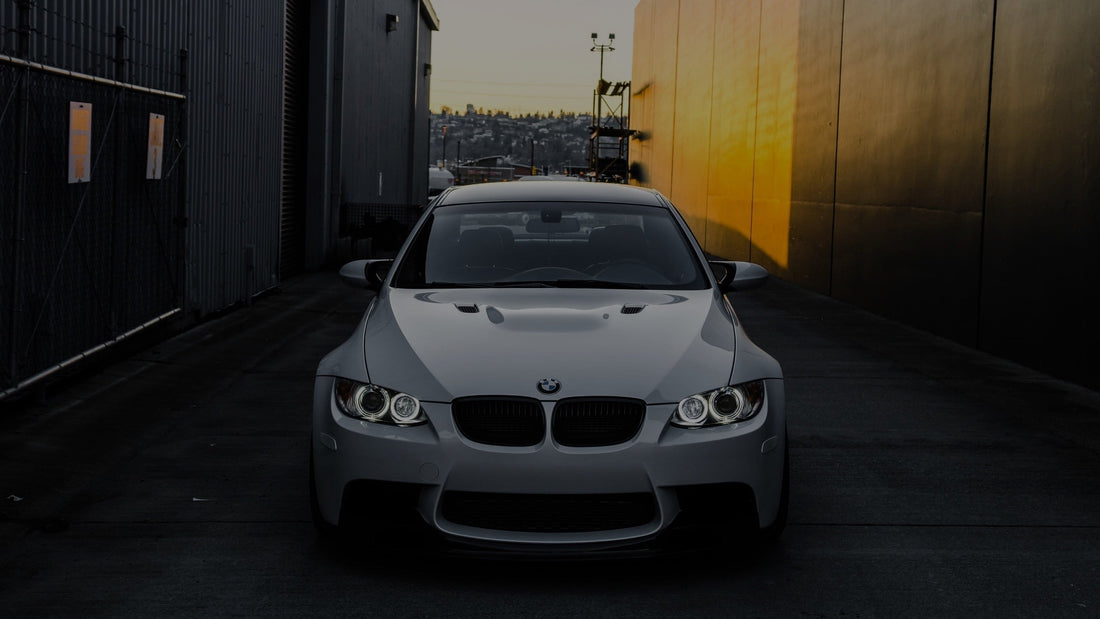
The Beauty of the Bmw M57
BMW M57 Engine: Why It's One of the Best Diesel Engines Ever Made
A Diesel Icon in the Making
In the world of high-performance engines, petrol powerplants often steal the spotlight. But when it comes to diesel excellence, few engines command as much respect as the BMW M57. Produced from 1998 to 2013, this inline-six diesel engine is praised for its strength, tuning potential, and long-term reliability.
Whether you’re a mechanic, tuner, or just a BMW enthusiast, the M57 holds a special place in diesel history.
A Brief History of the M57
The M57 was developed as BMW's next-generation diesel engine, replacing the M51. It debuted in 1998 in the E39 530d and quickly spread across the lineup, including the 3 Series (E46), 5 Series (E60), 7 Series, X5, and even the Range Rover L322 (in diesel markets).
Variants of the M57 included:
-M57D25 (2.5L)
-M57D30 (3.0L)
-M57TU (Technical Update)
-M57N2 (with twin-turbo in 535d and 335d)
These engines were designed not only for performance but for long life under demanding conditions — ideal for both executive sedans and high-mileage fleet vehicles.
Engineering Excellence: What Makes the M57 Special
Robust Construction
-Cast iron block: Built to handle the stress of high cylinder pressures.
-Aluminum head: Helps reduce weight and improve cooling efficiency.
-Chain-driven timing: Minimizes maintenance and increases reliability.
-Forged internals (in most variants): Strong enough to handle heavy tuning.
Advanced Technology for Its Time
-Common-rail direct injection for precise fuel management.
-Variable Geometry Turbochargers (VGT) in later models.
-DOHC with 24 valves for smooth airflow and performance.
The M57 was built like a tank, but refined like a BMW should be — smooth, quiet, and full of torque.
Performance and Driving Experience
Factory Power and Torque Figures
-2.5L variants: ~161–174 hp / 350–410 Nm
-3.0L single turbo: ~184–231 hp / 390–500 Nm
-3.0L twin-turbo (M57N2): 272–286 hp / up to 580 Nm (428 lb-ft)
Why It Feels So Good to Drive
The M57 delivers power where it counts — low and mid-range torque. That means effortless overtaking, smooth highway cruising, and punchy acceleration without needing high revs. Combined with BMW’s RWD or AWD systems and refined gearboxes, the M57-powered cars offer an engaging yet relaxed drive.
Tuning Potential: Diesel Power Unleashed
One of the biggest reasons the M57 has a cult following is its tuning potential.
What You Can Expect from Mods:
-Stage 1 remap: +40–60 hp, massive torque increase.
-Hybrid turbos + larger injectors: Up to 400–500 hp.
-Methanol injection, custom exhausts, and intercoolers: Push it even further.
Why It Handles Power So Well
The engine’s overbuilt internals, especially in early TU versions, can reliably support high power levels without opening the block. That’s rare in modern diesels and gives the M57 a serious edge for performance enthusiasts.
🔧 Pro tip: If you're planning a performance build, look for the 330d, 530d, or 335d M57 variants with manual gearboxes — they’re tuner favorites.
Legendary Reliability and Longevity
The M57 is not just a performance beast — it's also a durability champion.
Why It Lasts So Long
-Designed to handle commercial and high-mileage use.
-Real-world examples running well past 400,000 km (250,000+ miles).
-Fuel economy in the 35–45 mpg (US) range for highway driving.
Common Issues (and Fixes)
-Swirl flaps: Can fail — many enthusiasts delete them early.
-Vacuum hoses and EGR valves: Wear over time, but easily replaced.
-Turbo actuators: Can stick or fail with age.
Despite these minor quirks, the M57 remains one of the most reliable BMW engines ever produced.
M57 vs Modern Diesel Engines
Modern diesel engines may be cleaner or more high-tech, but they are also more complex and less durable.
| Feature | BMW M57 | Modern Diesels |
|---|---|---|
| Emissions Systems | Minimal / Tunable | DPF, AdBlue, SCR, etc. |
| Longevity | 300k+ miles common | Often fail before 200k |
| Tuning Capability | Excellent | Limited by electronics |
| Driving Feel | Linear, torquey | Often muted or laggy |
A Cult Classic with Enthusiast Support
From sleeper builds to diesel drift cars, the M57 community is alive and growing. Swapping the M57 into lighter BMW chassis (like the E30 or E36) is a growing trend in Europe.
Aftermarket Support
-ECU tuning tools (e.g. WinOLS, MHD, or Bootmod3)
-Hybrid turbo kits
-Reinforced clutches and driveline upgrades
-Diesel drag and drift communities worldwide
Forums like Bimmerforums, M57 Facebook groups, and UK-based diesel tuning boards offer an endless supply of guides and community knowledge.
Final Thoughts: A True Diesel Legend
In an era of over-engineered and fragile powerplants, the BMW M57 is a shining example of balanced, intelligent engineering. It offers:
-Torque-heavy performance
-Incredible tuning headroom
-Long-term durability
-Mechanical simplicity in a refined package
For enthusiasts and pragmatists alike, the M57 stands as one of the greatest diesel engines ever made — and possibly one of the most underrated in the world of performance engines.
💬 Have you owned or tuned an M57? Let us know your experience in the comments below! And don’t forget to subscribe for more BMW tech and tuning deep-dives.
